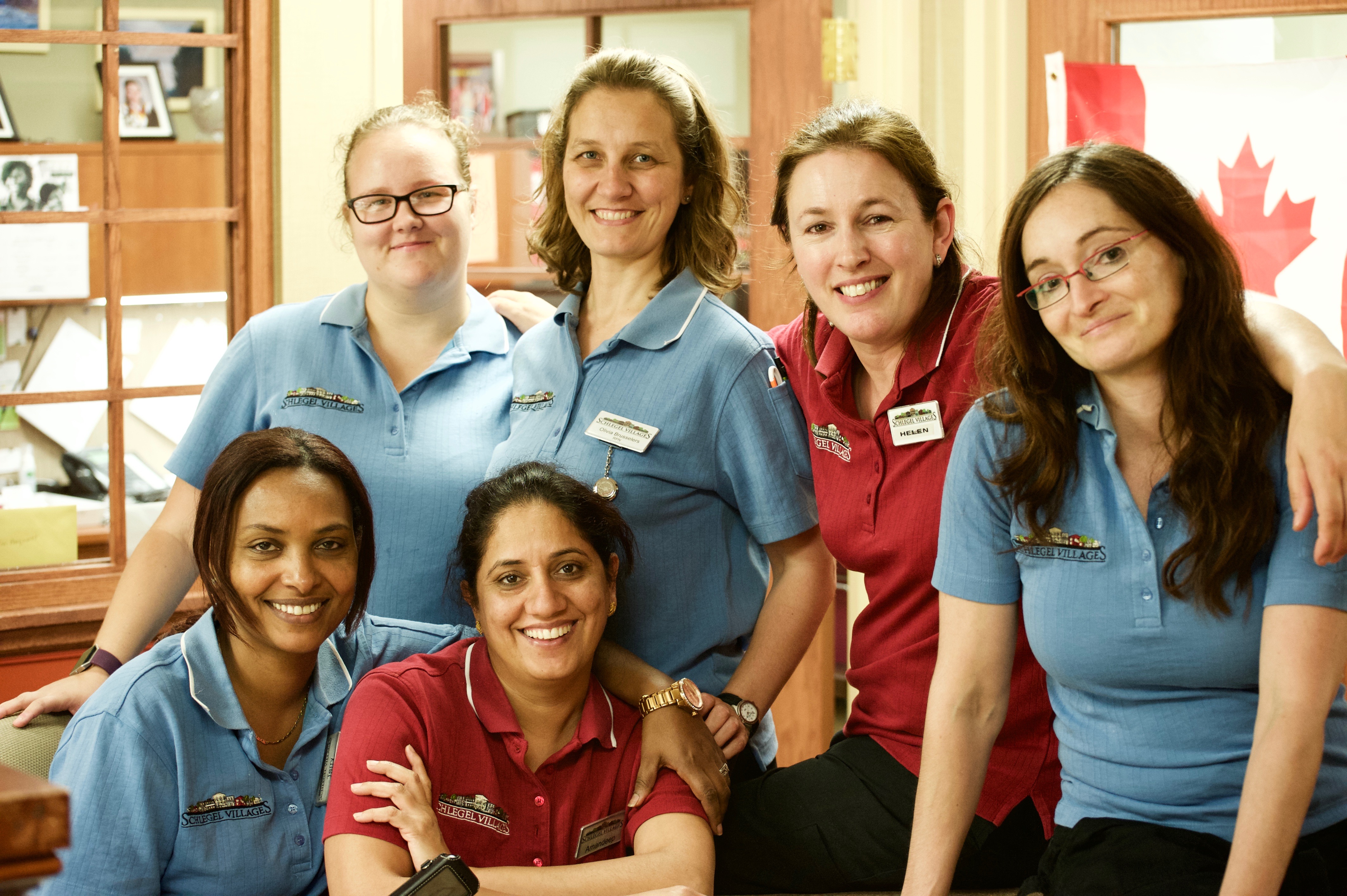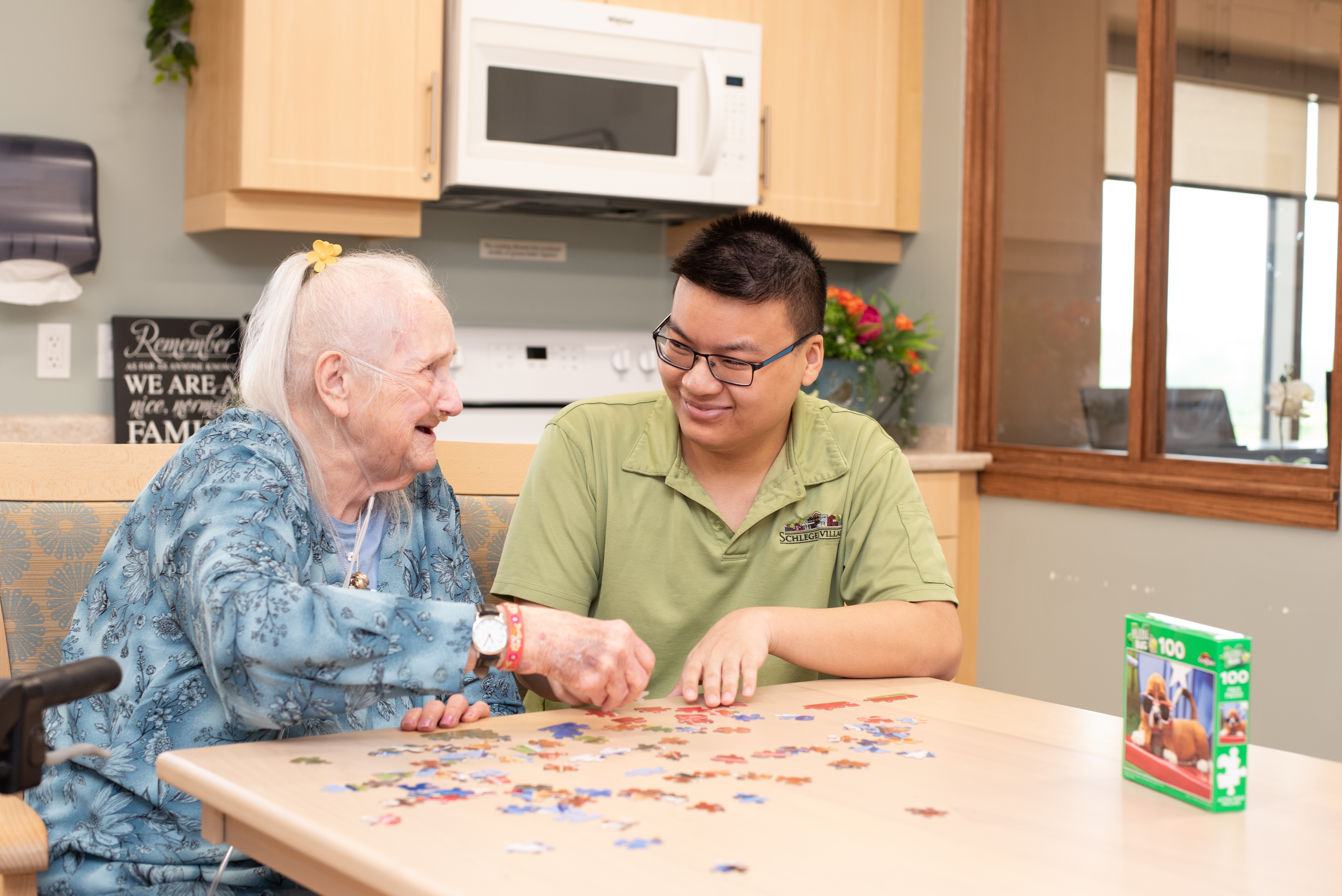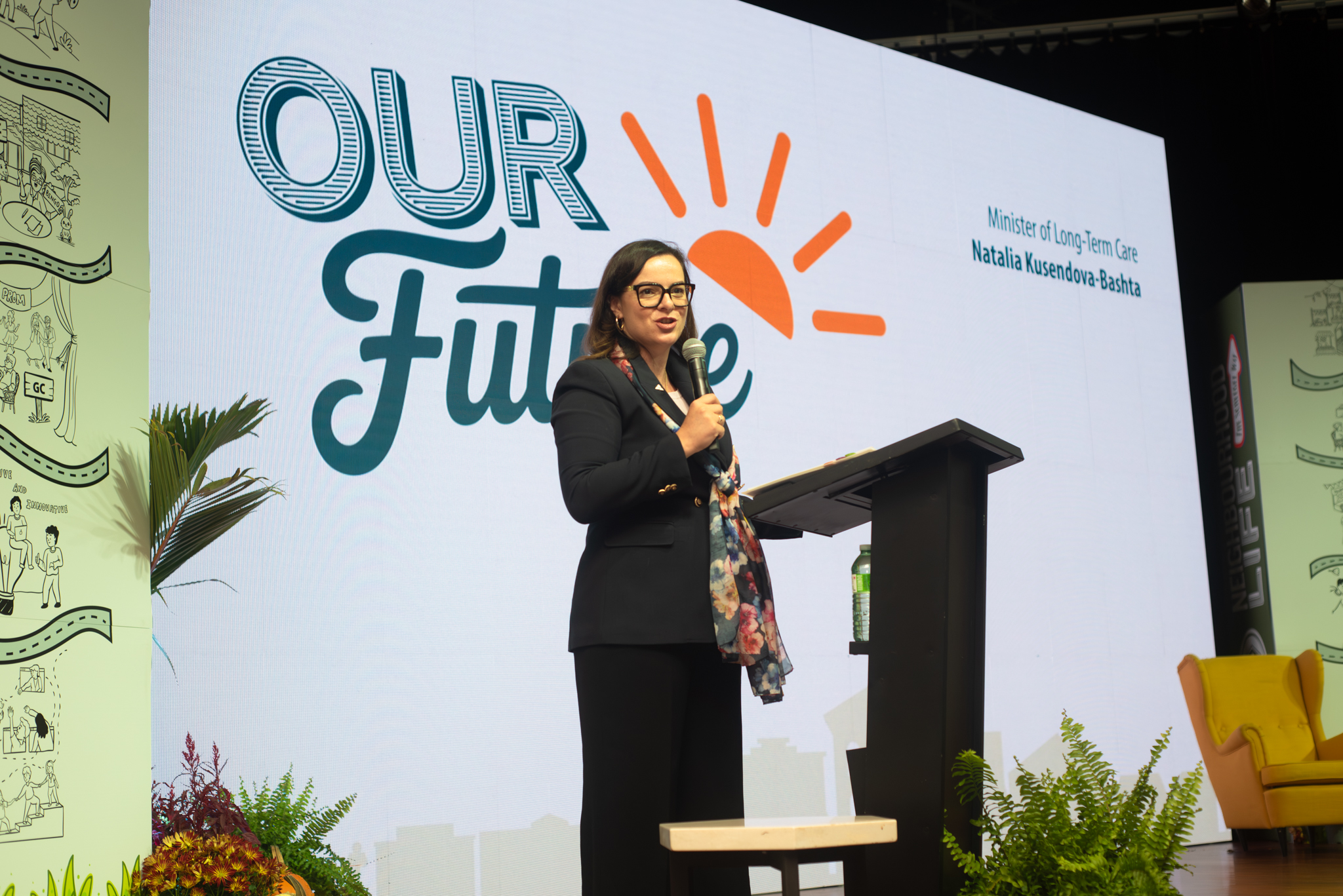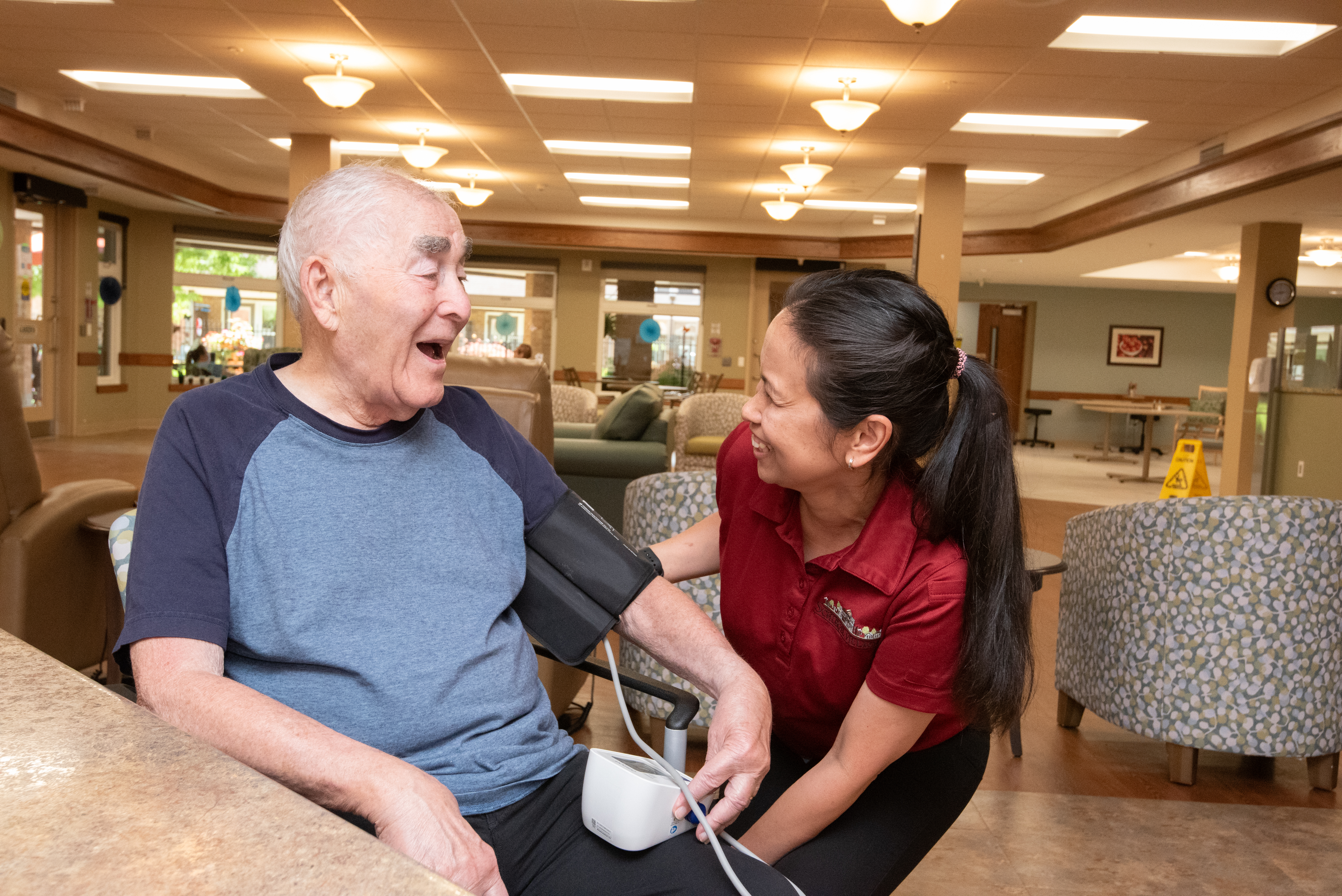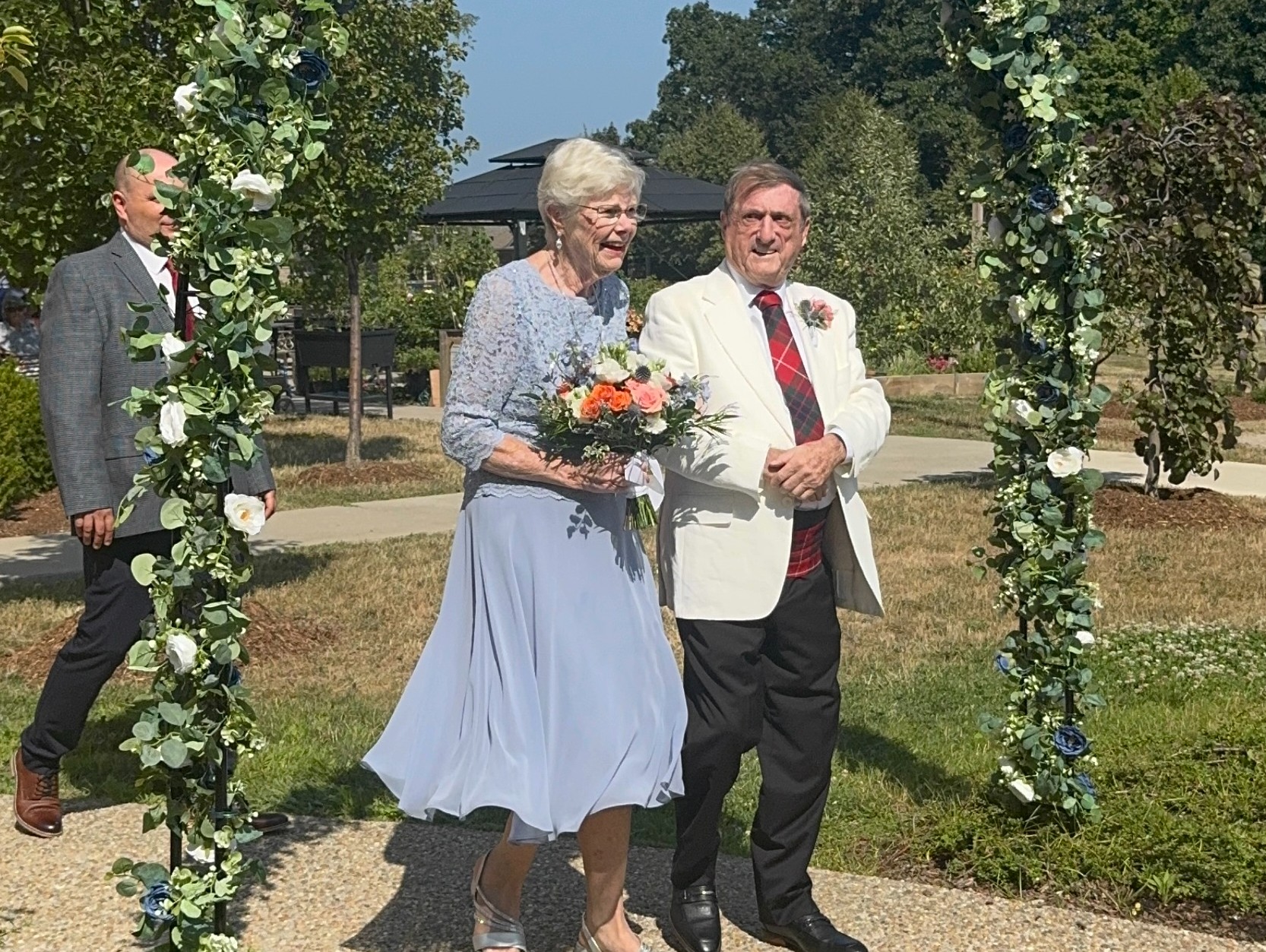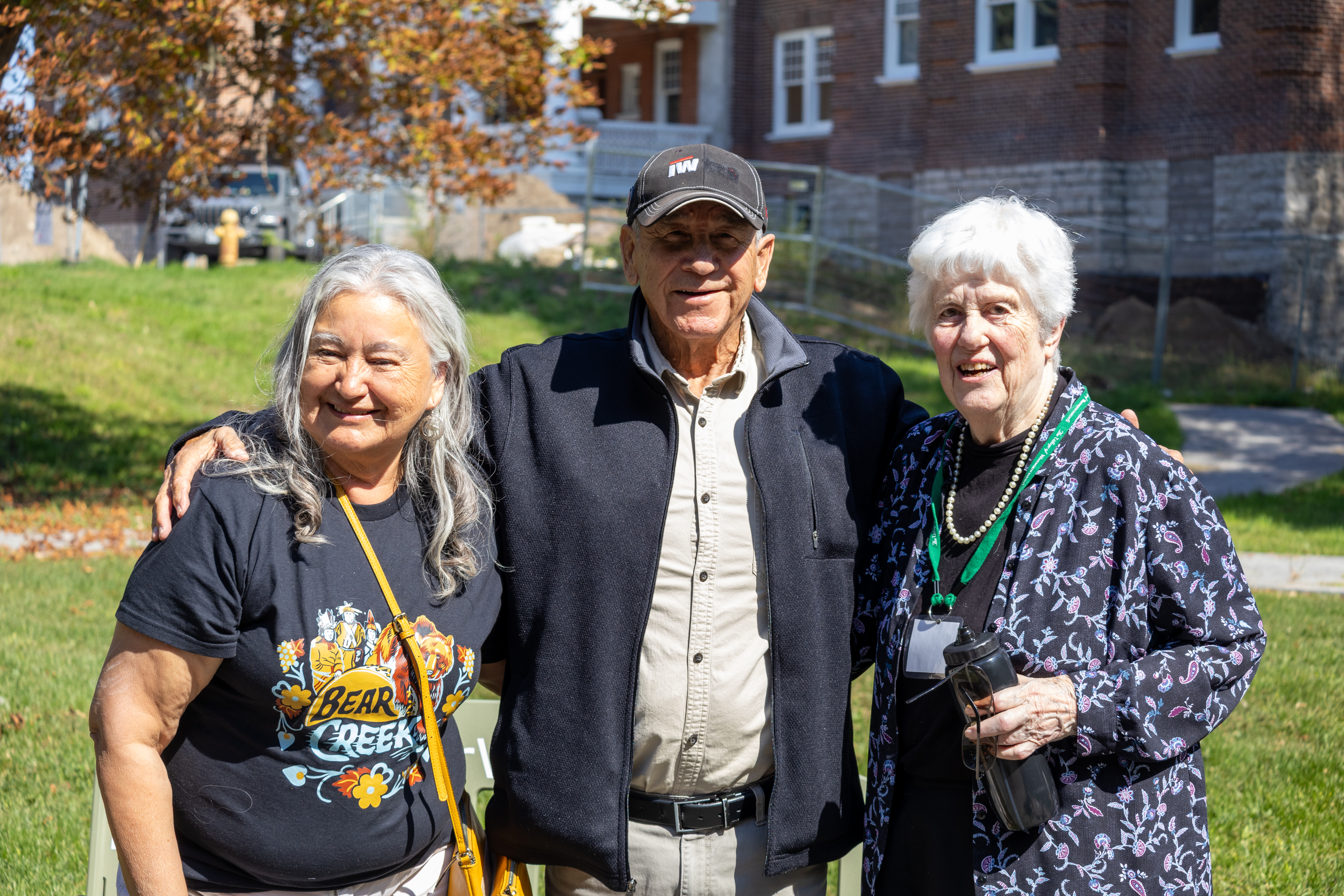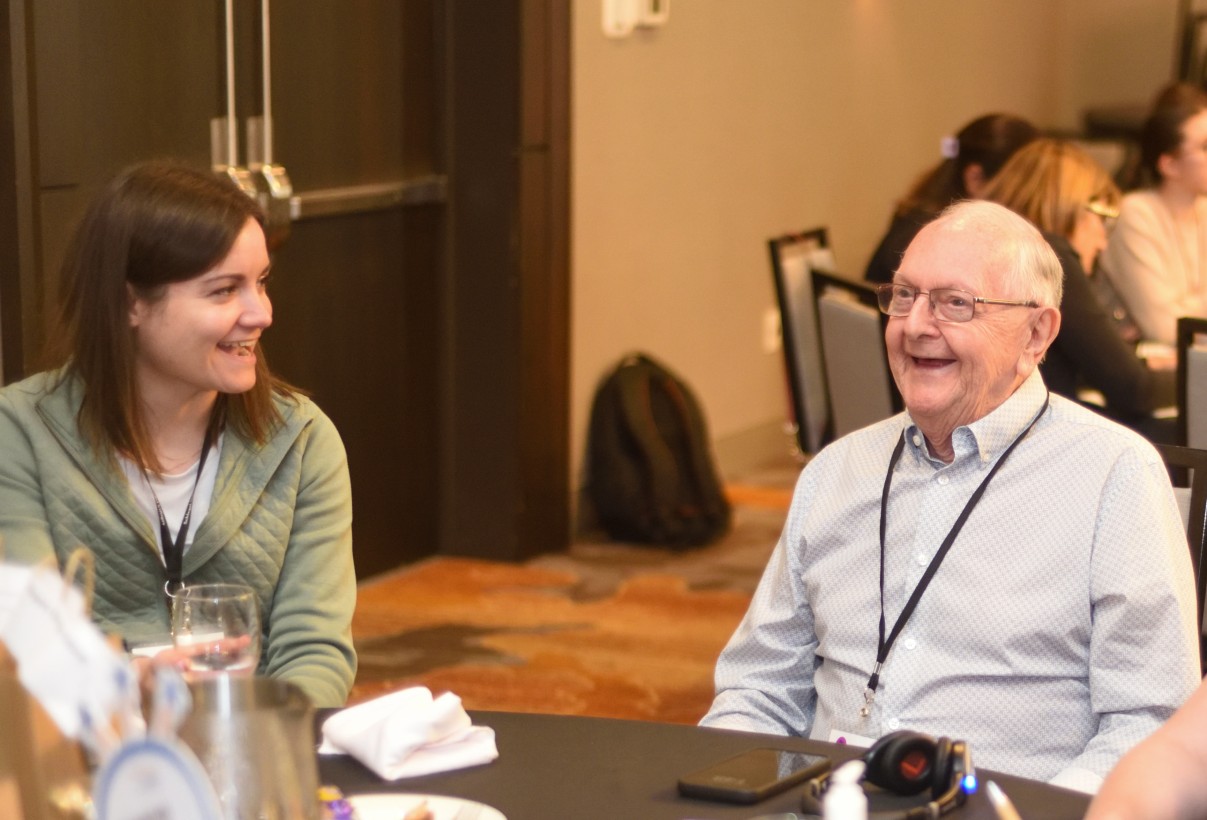Michael Farrell had never had an illness in all of his 77 years. He’d come across the odd minor cold over the course of time and he broke a shoulder twice and a knee once, thanks to an active sports life, but a serious illness had never happened to him.
That changed in the fall of 2022 when late at night, he rose from bed, presumably to use the washroom, and he stumbled several times. Concerned, he phoned his daughter in Ottawa who contacted the Village nurse on duty right away.
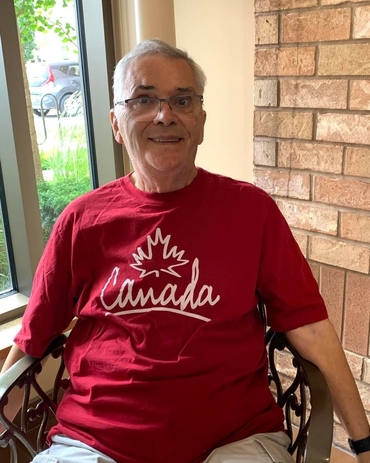 The team quickly checked his suite and found him lying upon the floor. An ambulance rushed him to Credit Valley Hospital where he spent 63 days in the Intensive Care Unit and another 81 recovering before he could safely return to The Village. A rare form of Legionnaire’s disease was to blame and nearly a year later, Michael is sitting comfortably in his suite recounting that difficult time and his path to recovery. Aside from a bit of difficulty with his mobility, he’s practically fully recovered, and he's looking forward to picking up his golf game again in the 2024 season.
The team quickly checked his suite and found him lying upon the floor. An ambulance rushed him to Credit Valley Hospital where he spent 63 days in the Intensive Care Unit and another 81 recovering before he could safely return to The Village. A rare form of Legionnaire’s disease was to blame and nearly a year later, Michael is sitting comfortably in his suite recounting that difficult time and his path to recovery. Aside from a bit of difficulty with his mobility, he’s practically fully recovered, and he's looking forward to picking up his golf game again in the 2024 season.
This isn’t the first time he’s told his story; once he was able, he put his notes together and offered to share the experience with his fellow residents at Erin Meadows, for in the most challenging of times the most important of lessons will often emerge.
The lessons he imparts:
“Number one, always have an advocate,” he says, “somebody who really cares about you.” His daughters were his saving grace in this regard, and it was important that they were available and able to share important information with the medical professionals when he wasn’t able.
“Number two,” Michael continues, “cherish the health system – it’s really, really good. I should have died but I didn’t, and it’s the doctors and nurses and prayers and all the rest of that stuff that brought me through.
“Imagine if I were in Buffalo, New York,” he adds. “How much that would have cost?”
Lastly, he says people must plan for any eventuality. “Make sure your affairs are in shape,” he says. “You never know when it’s going to happen, and let people know where your stuff is kept.”
After returning to Erin Meadows from the hospital, the Erin Meadows team was very supportive in Michael’s ongoing recovery.
“They were very good to me here,” he says. He was learning to navigate in a wheelchair, for example, and the team encouraged him to get involved in whatever he could participate in to help him regain his strength.
The Program for Active Living was also a key aspect of his recovery, with the kinesiologists and exercise therapists eager to find individual supports to fit his needs. He was also able to access outside assistance, including speech therapy, and, again, his daughters were instrumental in helping arrange these supports.
It truly does take a Village to care, it seems, and Michael shares his story as a way to encourage others to plan for all eventualities in life. He speaks with optimism, looking forward to what lies ahead, knowing that he’s fortunate to be able to do so with his loved ones never too far away and a supportive community around him.
